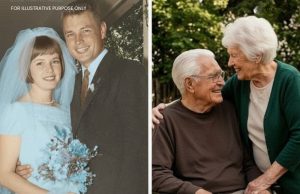
Turning 80 isn’t simply adding another candle to the cake; it’s entering a territory where life’s rhythm changes, the days feel different, and priorities shift. It’s an age that combines the serenity of someone who has seen much with the silent weight of absences.
Many don’t say it out loud, but after 80, loneliness ceases to be an occasional occurrence and becomes a constant presence, sometimes gentle, sometimes painful.
This article isn’t meant to sadden you, but rather to help you understand and embrace this stage of life with wisdom. Because when you acknowledge life’s truths, you can live with more calm, dignity, and purpose.
5 Realities About Loneliness After 80

1. The Circle Shrinks, But the Heart Grows
Over the years, the faces that used to accompany you every day begin to disappear. Friends who have passed away, neighbors who are no longer there, phone calls that become less frequent. The silence grows longer, and time seems to slow down.
It’s not abandonment, it’s the natural course of life. But this solitude doesn’t have to be a punishment: it can be an opportunity to reconnect with yourself, with nature, with memories. Sometimes, the heart expands precisely when the noise disappears.
Tip: Don’t wait for calls, make them. Start conversations, visit, participate in groups in your neighborhood or senior centers. At this age, connection must be sought intentionally.
2. The Body That Asks for Patience and Tenderness
After 80, the body no longer responds the same way. What used to heal in a day now needs a week. Strength is rationed, and movements require more care.
But that doesn’t mean life stops. It means the body asks for respect, rest, and tenderness. Every scar, every wrinkle, and every slower step bears witness to a story lived with courage.
Tip: Listen to your body without anger. If it’s tired, let it rest. If it hurts, treat it with kindness. Taking care of your body is also taking care of your mind.
3. Accepting help isn’t giving up, it’s wisdom.
For decades you were the one who helped: the one who lifted, advised, and supported. But there comes a time when the roles change, and accepting help becomes part of your strength.
Receiving support doesn’t take away your independence; it protects it. A cane, a companion, or a helping hand aren’t signs of weakness, but of emotional intelligence.
Tip: Thank people for their help without guilt. And if you can, teach others to give it with respect, without empty pity. Shared help creates deeper bonds.
4. The world keeps turning, but your voice still matters.
In a society that rushes by without looking back, many older people feel invisible. Young people hurry, doctors talk to their children, and decisions seem to be made without asking them.
But your voice, your experience, and your memories are worth their weight in gold. Don’t stay silent. Speak up, share your opinion, and give your thoughts. Being heard isn’t a privilege: it’s a right earned over time.
Tip: Participate in spaces where you can share your story. From a book group to a family chat, every word you say can leave a mark on those who listen.
5. When Purpose Changes, But Doesn’t Disappear
Work, responsibilities, and goals may be behind you, but the meaning of life doesn’t end. At 80, purpose takes on a new form: it’s no longer about producing, but about existing with meaning.
Listening, accompanying, advising, sharing a smile: every gesture becomes a seed of value.
Tip: Every morning ask yourself, “What can I contribute today?” Sometimes it will be a kind word, other times, an understanding silence. Everything carries weight when it comes from experience.
Final tips for embracing this stage with serenity:
Keep your mind active: reading, writing, or learning something new keeps curiosity alive.
Surround yourself with light and nature: a short walk, a ray of sunshine, or a plant can renew your energy.
Don’t fear silence: sometimes silence isn’t emptiness, but peace.
Cherish each day: not as a countdown, but as an opportunity to leave another mark.
Living past 80 is not just a biological achievement, it’s a lesson in resilience. It’s having survived change, loss, and oblivion, yet remaining standing with dignity.
This stage is not an epilogue, but a different chapter: calmer, wiser, more human.
Because, in the end, loneliness can hurt, but it can also teach you to love yourself more deeply than ever before.















